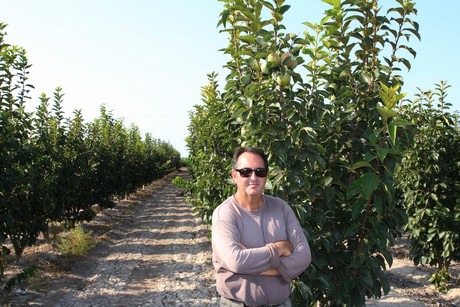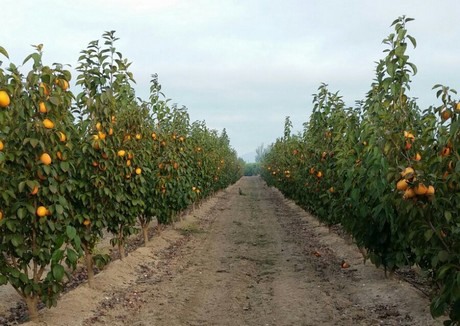The worrying increase in pests and the impact of the weather are causing the kaki production to fall at a higher rate than expected in the Region of Valencia, the fruit's main producing area in Spain. Although the prices that producers receive are higher compared to the same period last season, the increase in costs to try to control pests is taking a huge toll on the profitability.

“Every week that passes, we are losing hope in being able to fulfill the prospects we had for this campaign. We are not going to earn more money because there are fewer volumes, but rather the campaign is going to end about a month earlier than usual,” says the Valencian producer Eduardo Cifre, founder of the Oka Fruits company. "Despite the fact that the supply has been almost halved compared to last year, the large distribution chains continue to push prices down to unsustainable levels. We have kept seeing that in recent years," he says.
In only a few campaigns, the pests that affect kaki crops have multiplied exponentially. The limitation in the use of phytosanitary products by public administrations means that pests such as the cotonet or whitefly, or fungi such as the Mycospharela continue to spread without control.

“5 or 6 years ago, we were able to grow the fruit with very few treatments and low costs, and the prices we received for the fruit were undoubtedly higher. Now the need for treatments has multiplied by 3 or 4, without success in managing to control the pests, and the sale prices have also fallen with the increase in the production,” says the producer.
“The worst part is that we have no effective means of neutralizing pests and they continue to spread over time. Next year could be much worse if we are unable to obtain effective treatments, and this is going to create a very serious problem for the sector. Many producers abandoned the crop last year after the disastrous results of the campaign due to the ridiculous prices they received. The unstoppable advance of pests makes us wonder whether it is worth continuing to invest in kakis or not. I have experience in the production and export of this product and I can say that, if the circumstances don't change much, I don't see a future for it,” says Eduardo Cifre.
For more information:
Eduardo Cifre
OKA FRUITS
+34 639 628 670
[email protected]
www.okafruits.com
